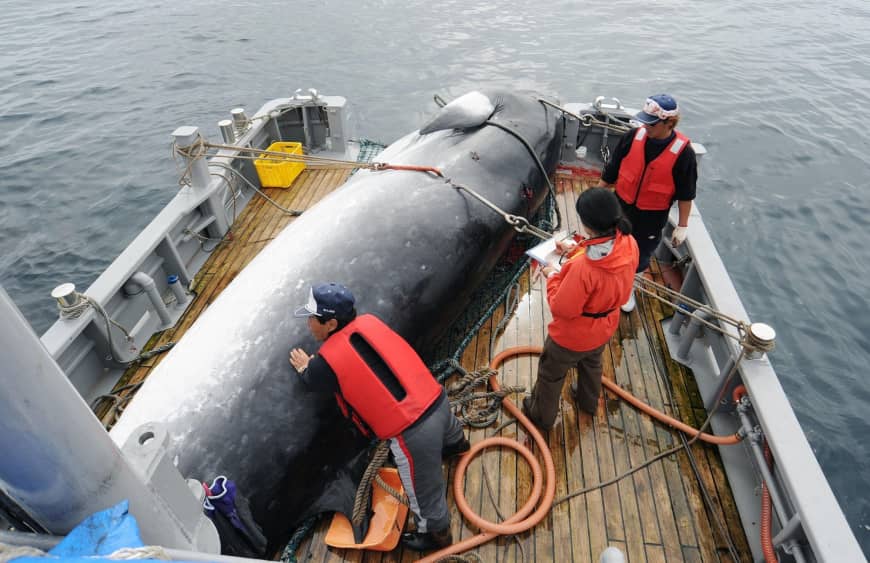Japan officially withdraws from the IWC to re-commence commercial whaling.
Breaking news today with the announcement that Japan has officially left the International Whaling Commission and is set to re-commence commercial whaling in their territorial waters for the first time in 30 years.
An historic and infamous policy shift has taken place today with the announcement that Japan will begin commercial whaling once again, despite their sanctioned whaling in the Southern Ocean which has been under the guise of "scientific whaling".
The first whaling expedition is set to start in July 2019, an activity that has been globally condemned since 1988. While some species seem to be recovering post whaling, many are still threatened with extinction and this landmark policy shift goes against the advice of global scientific recommendations. Japan will re-commence whaling on species whose abundance appears to be recovered such as minke, Bryde's and sei whales. Despite the fact Japan has left the IWC, they will continue to attend meetings as an observer to fulfil a condition set under the UN designated Convention on the Law of Sea.
Humane Society International has also expressed concerns that “Japan may recruit other pro-whaling nations to leave the IWC, leading to a new chapter of renegade slaughter of whales for profit.”
While whaling is deeply ingrained in the Japanese culture, dating back as far as the earliest historical era of the Jamon Period (10,000-200 B.C.). Whale meat also served as critical sources of protein in the postwar period as the nation grappled with poverty. Despite international out-cry since the moratorium on whales, Japan has insisted on whaling for decades. this year they took 333 minke whales from the Southern Ocean, under the pretext of "scientific" whaling. Consumption of whale meat in Japan peaked at 230,000 tons annually in 1962 however in recent years it has seen a downward trend, with an average of 5,000 to 6,000 tons per year on average, according to fishery ministry official Hideki Moronuki.
It is been advised by the scientific community that humans should avoid the consumption of whale meat, as being a top-predator in the marine ecosystem they bioaccumulate pollutants and heavy metals, making their meat highly toxic and dangerous today.
The news that Japan will re-commence commercial whaling, exposes their "scientific whaling" in the Southern Ocean as fraudulent and the scheme to pose researchers will no longer be allowed to continue, according to Sea Shepard. This means Japan no longer has justification to hunt whales in an internationally established whale sanctuary. Japan leaving the IWC thus means that the commission can now pass the motion to establish the South Atlantic Whale Sanctuary and effectively end whaling in the Southern Ocean. This also brings the focus of the anti-whaling campaign to the Northern Hemisphere opposing pirate whaling nations of Norway and Iceland.
SHARE THIS ARTICLE














